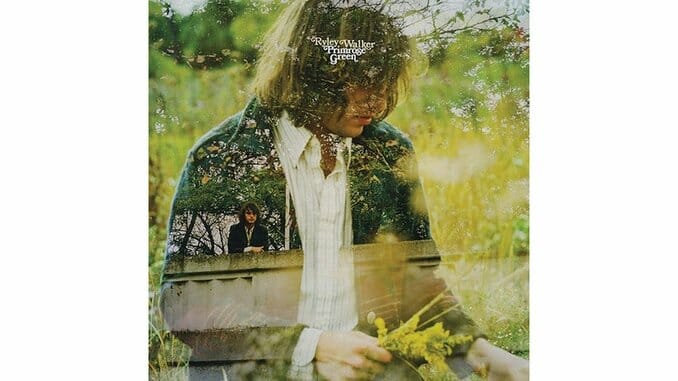That Ryley Walker appears to embody the determined, shaggy-haired guitar artiste of the austere folk ‘70s is only one of his endearments. The fact that the breadth of his musicianship actually matches the persona—steeped as it is in both the minimalist traditions of Chicagoland experimental jazz and the fingerpicking wizardry of primitive guitar folk heroes like Glenn Jones—paints Walker as a real-deal revivalist of the most unironic order. This is important when listening to Walker’s sophomore album, Primrose Green. Forgetting the convenient shortcut of crying “rehash” when a new artist contributes to the continuum of a tradition is not only advised, it’s implored with an album as terrifically imaginative as Primrose Green.
Walker’s guitar chops are renowned, yet not front-and-center on a majority of the record, beginning with the title track, which opens the LP. Driven by skittering piano runs and a warm, understated double-bass line, Walker’s guitar progressions are advanced and thoughtful, but also accessible and timeless—less of the virtuosic variety and more of the American Beauty workingman’s fretwork: Honest and subdued, yet strong simultaneously.
The album benefits in scope and concept from the added incentive of a trio of hardened Chicago improv jazz vets (drummer Frank Rosaly, cellist Fred Lonberg-Holm, bassist Anton Hatwich and vibraphonist Jason Adasiewicz), creating a bridge of American musicality that’s tough to compare to much else. The spanning of the overpoweringly American traditions of jazz and folk, psychedelia and experimental music coalesces on tunes like the jammy “Summer Dress.” The song emerges from Walker and company’s creative alchemy as a groovy, rhythmic bender, replete with a sleepy upright low-end, introducing fertile sonic real estate that encompasses hypnotic guitars, splashy drums, blotter-paper keyboards and a menagerie of counter-melodic noises converging.
The trippy plodding of “Same Minds” commences with another inquisitive bass line, so dutifully recorded you can hear the frizzes in the fingers on the frets. Its power is delivered in Morrison peyote visions and chants, like tribal warrior cries. Walker’s vocal dexterity is such that an essentially minimalist song like this can, through the rigors of repetition, take on another, holier form—something almost spiritually resounding, like a rain dance on the Plains. He mirrors this chanting delivery on “Sweet Satisfaction,” this pleading yelp, lengthening the final word of the line “I’d rather be dead,” which opens up into a psych-jam freakout, lassoing the kind of free-range climax of a punk rock Jerry Garcia. It’s not altogether shocking to have the insight that Walker improvised lots of the lyrics while in the studio from scraps of handwritten journal entries from a harrowing 2013 tour.
The rolling-range optimism of “Griffiths Buck Blues”—perhaps the best composition on the album—is an instrumental epic, awash in the intricacies of superlative primitive guitar styling, with driving rhythms, violins and cello. Some come more demure, as on the similarly intricate, yet more gorgeously composed, string-accompanied “The High Road,” a remarkably acute view into Walker’s breadth of heart and harmony concerning his songs.
Whether displaying his loyalty to his muse’s roots, or gnashing his teeth at the right to snub traditions (or again, to attempt at creating new ones), Ryley Walker’s talents are enormous. The praise for his second full-length ought to be the same.
